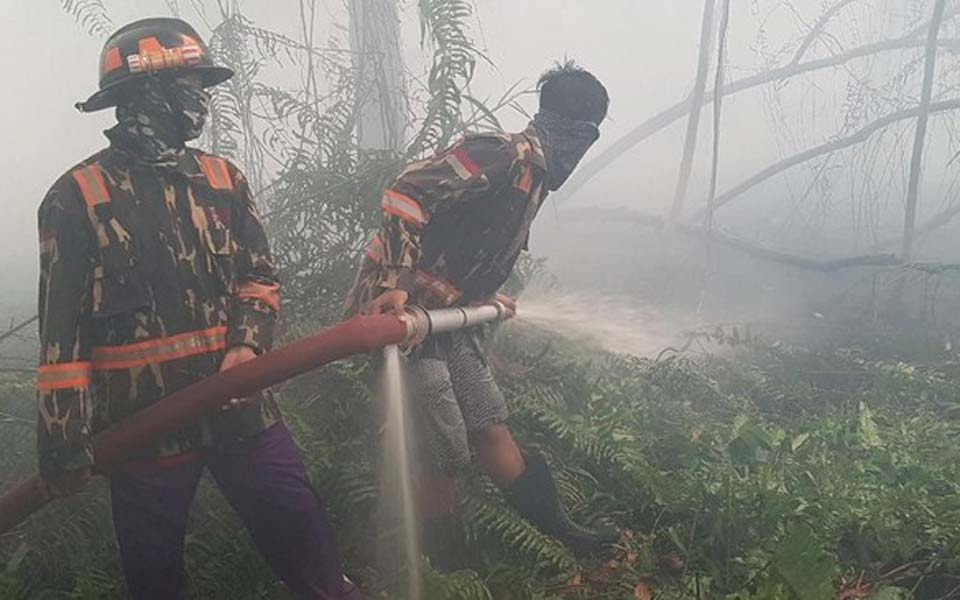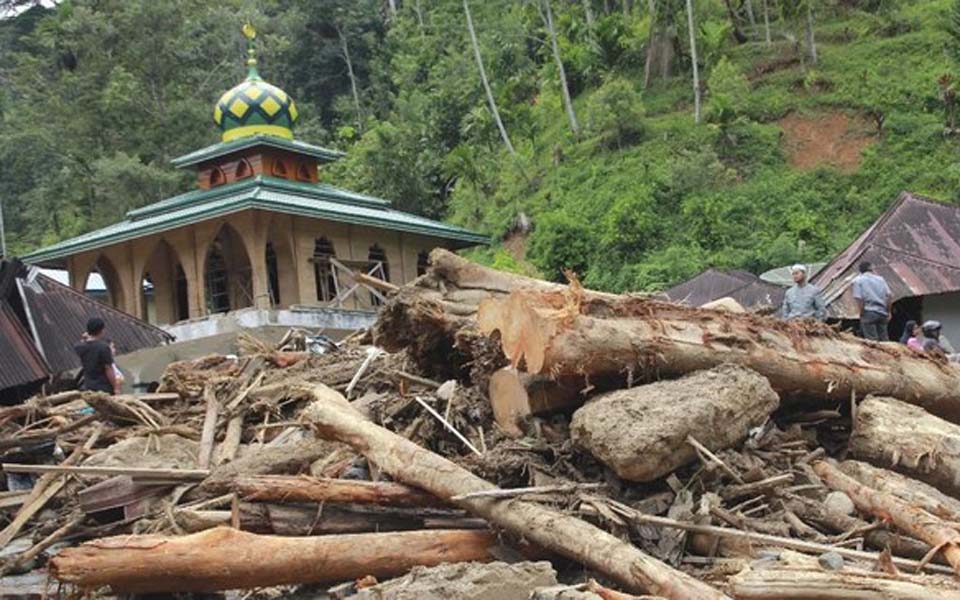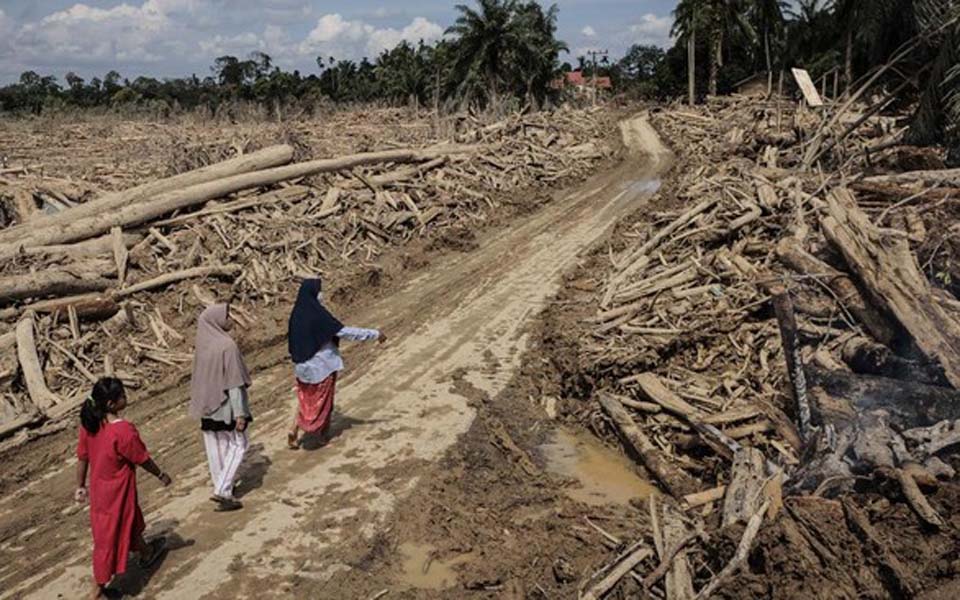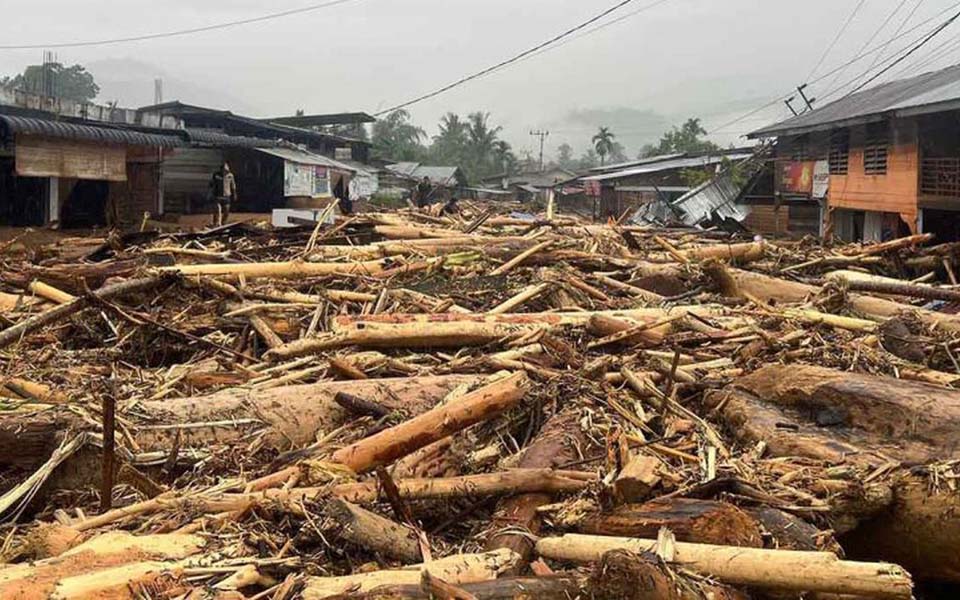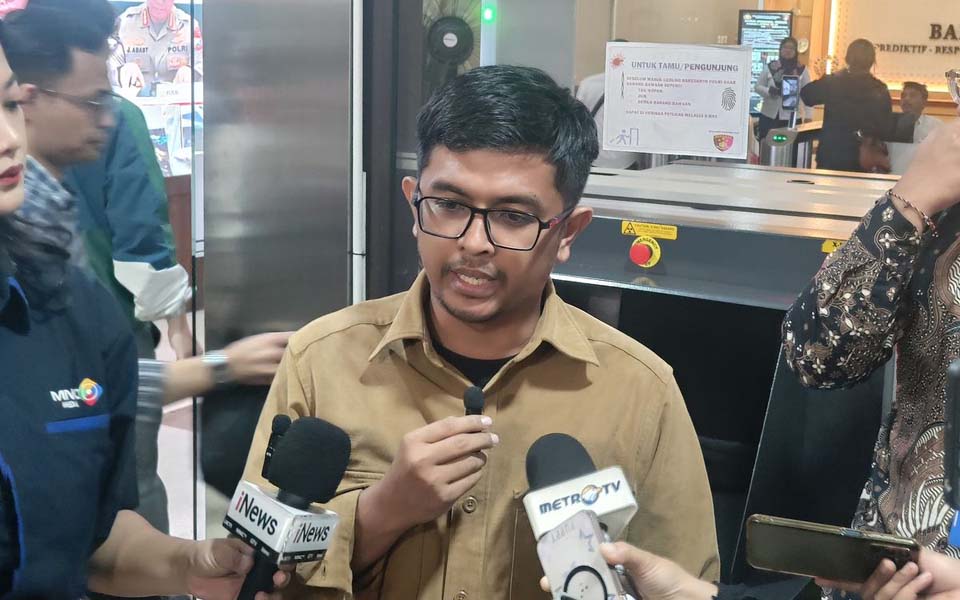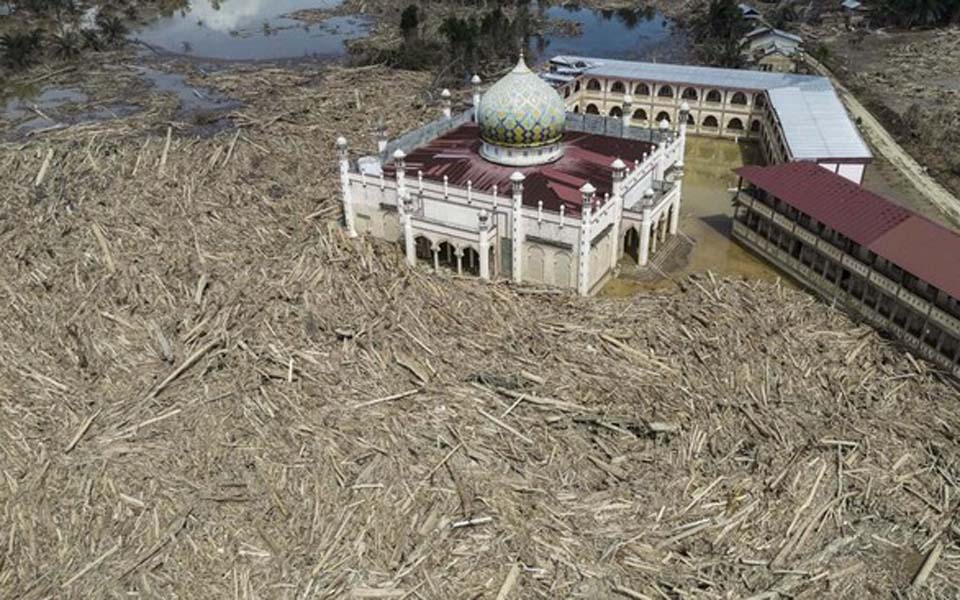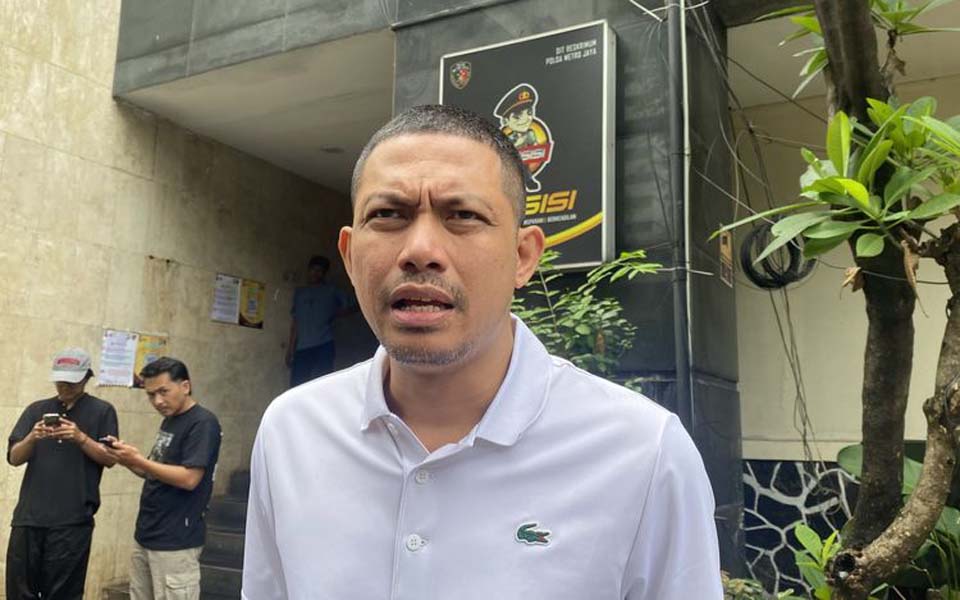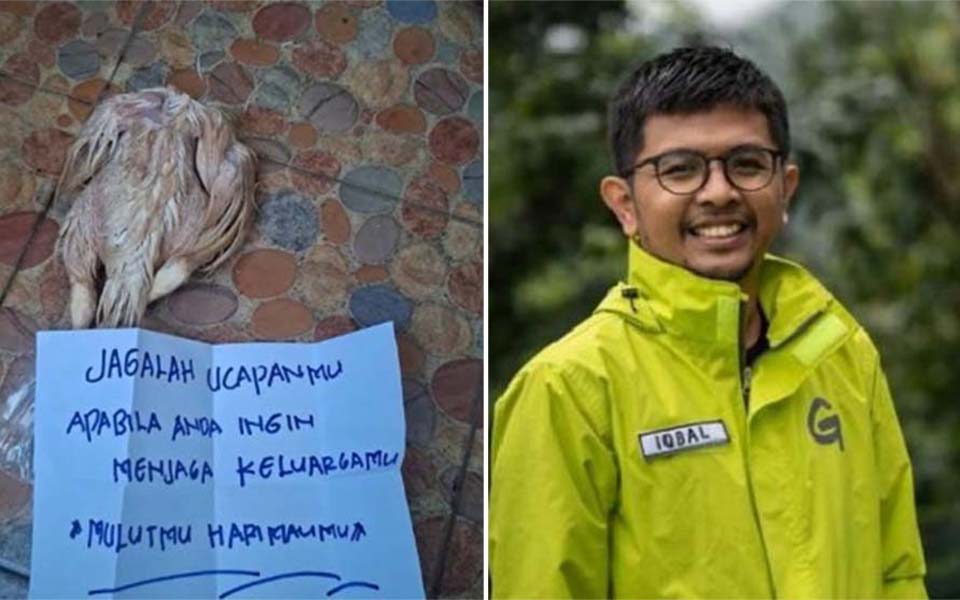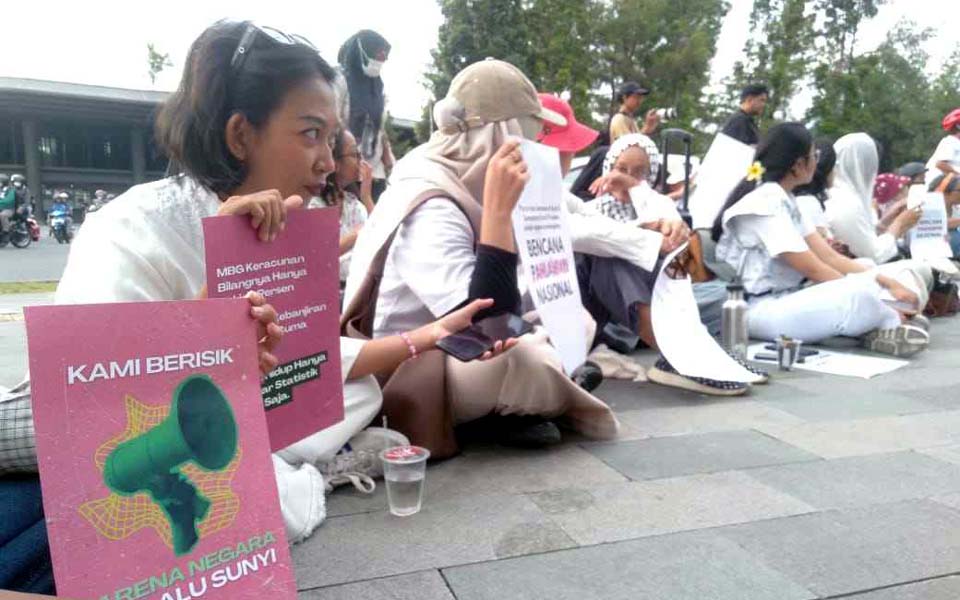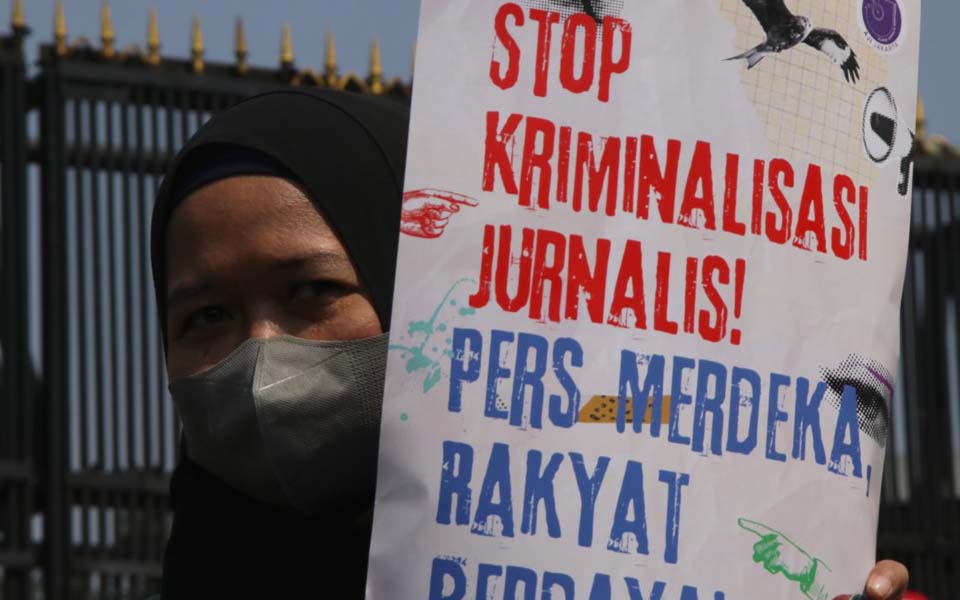Jakarta – The Indonesian Forum for the Environmental (Walhi) has recorded that 8,644 hotspots have been detected throughout the West Kalimantan region (Kalbar) throughout May to the end of July 2025, mostly in areas where there are palm oil and industrial plantations.
"Most of the hotspots were found inside the concession area of palm oil plantations and industrial plantations, which indicate corporate involvement in forest and land fires (Karhutla) this year", said Walhi West Kalimantan justice and reform division head Andre Illu on Wednesday July 30.
The Walhi report said that the five districts with the largest number of hotspots were the regencies of Sanggau (1,816), Mempawah (1,190), Sambas (1,190), Landak (807) and Ketapang (657).
Of this total, as many as 2,652 hotspots were found in the concession areas of plantation companies, with the most in concessions owned by PT Perkebunan Nusantara XIII (124 hotspots), PT Kapuas Palm Industri (108), Sumatera Unggul Makmur (106), PT Global Kalimantan Makmur (103) and Mitra Austral Sejahtera (89).
Meanwhile, in Forest Concession Business Licenses (PBPH) concessions, 1,061 hotspots were recorded in 54 companies. Concessions with the highest number of hotspots included PT Finantara Intiga (143), PT Duta Andalan Sukses (102), PT Fajar Wana Lestari (88) and PT Kanya Resources (71).
"Forest and land fires have become an annual agenda, unfortunately not an achievement agenda, but a form of government failure in solving the problem", said Illu.
He added that fires in peat hydrological areas (KHG) continued to reputedly occur even though the previous government was committed to protecting and restoring peatlands after the massive forest and land fires in 2015.
Based on Walhi's overlay data, there are 2,353 hotspots in the peatland areas spread over 36 palm oil company concessions. Among them are PT Sumatera Unggul Makmur (89 hotspots), the Purun River Penitan (53) and Mitra Andalan Sejahtera (18).
"Even Pontianak has now begun to be affected by the smog and worsening air quality. This is only the beginning of the dry season. If there is no serious action, the state will only be repeating the negligence and failure to protect the right of citizens to a healthy environment", he said.
Walhi highlighted that the handling of forest and land fires has been mostly targeting individuals or small farmers, while the companies' roles and responsibilities are almost untouched. In fact, several of these companies that were found guilty of forest and land fires in previous years have still not been prosecuted nor had their permits revoked.
"Several of the concessions that are burning this year also burned in 2015, 2019 and 2023. This shows a recurring pattern and the absence of a deterrent effect", said Illu.
He also revealed that land management in peatland areas by companies, such as the digging of canals, have helped damage the regional hydrological system and had a major impact on the area and the surrounding community. Although there is an effort to manage water in concession areas, damage to the water flow system makes peat more flammable when the dry season arrives.
Walhi emphasised that the root of the forest and land fire issue is not just technical limitations or individual errors, but rather structural failures in supervision, law enforcement and the state siding with corporations.
For this reason, they are pushing the government to carry out a comprehensive evaluation of all plantation and forestry business licenses, especially those in area where there are forest and land fires.
"Impunity for corporations is a tangible form of state submission. Law enforcement must reach the main actors, not just be symbolic such as sealing off land or the revocation of permits which have never been carried out", he said.
The West Kalimantan Walhi is also requested that the central and regional governments strengthen early detection capacity and monitoring systems as well as the restoration of peatland ecosystems as part of climate mitigation strategies.
With the potential for the long dry season until the end of the year, it is predicted that the threat of forest and land fires in West Kalimantan will not end any time soon. This situation requires a rapid and measurable response from the government so that this annual ecological disaster does not repeat the adverse effects of previous years such as air pollution, health problems, economic losses and damage to biodiversity.
"As long as the state does not seriously address the root of the problem, then West Kalimantan and other provinces will continue to be in a recurring cycle of ecological disaster", he said. (antara/dal)
[Translated by James Balowski. The original title of the article was "WALHI: Titik Api Karhutla Kalbar Sebagian Besar di Area Konsesi Sawit".]





